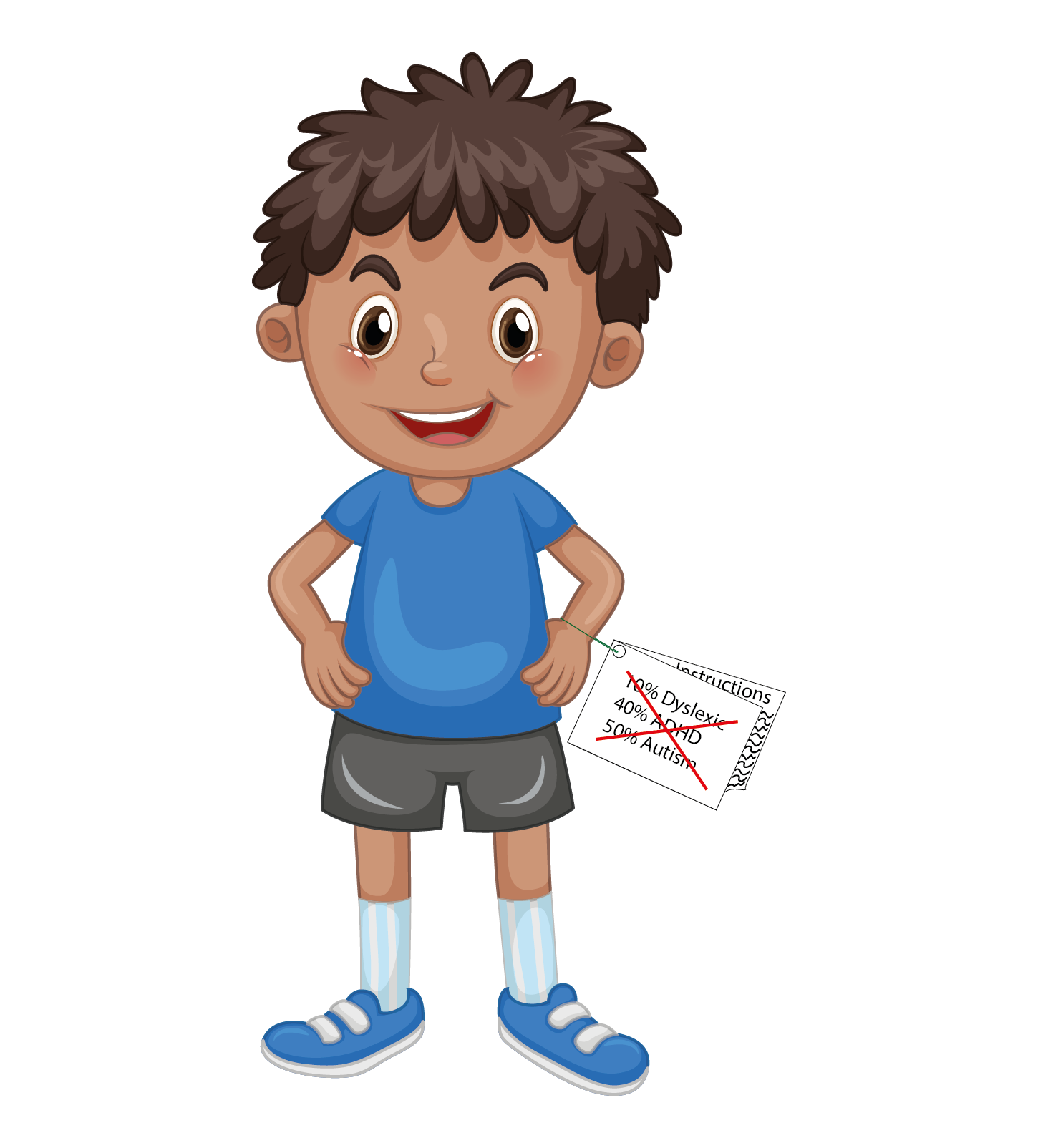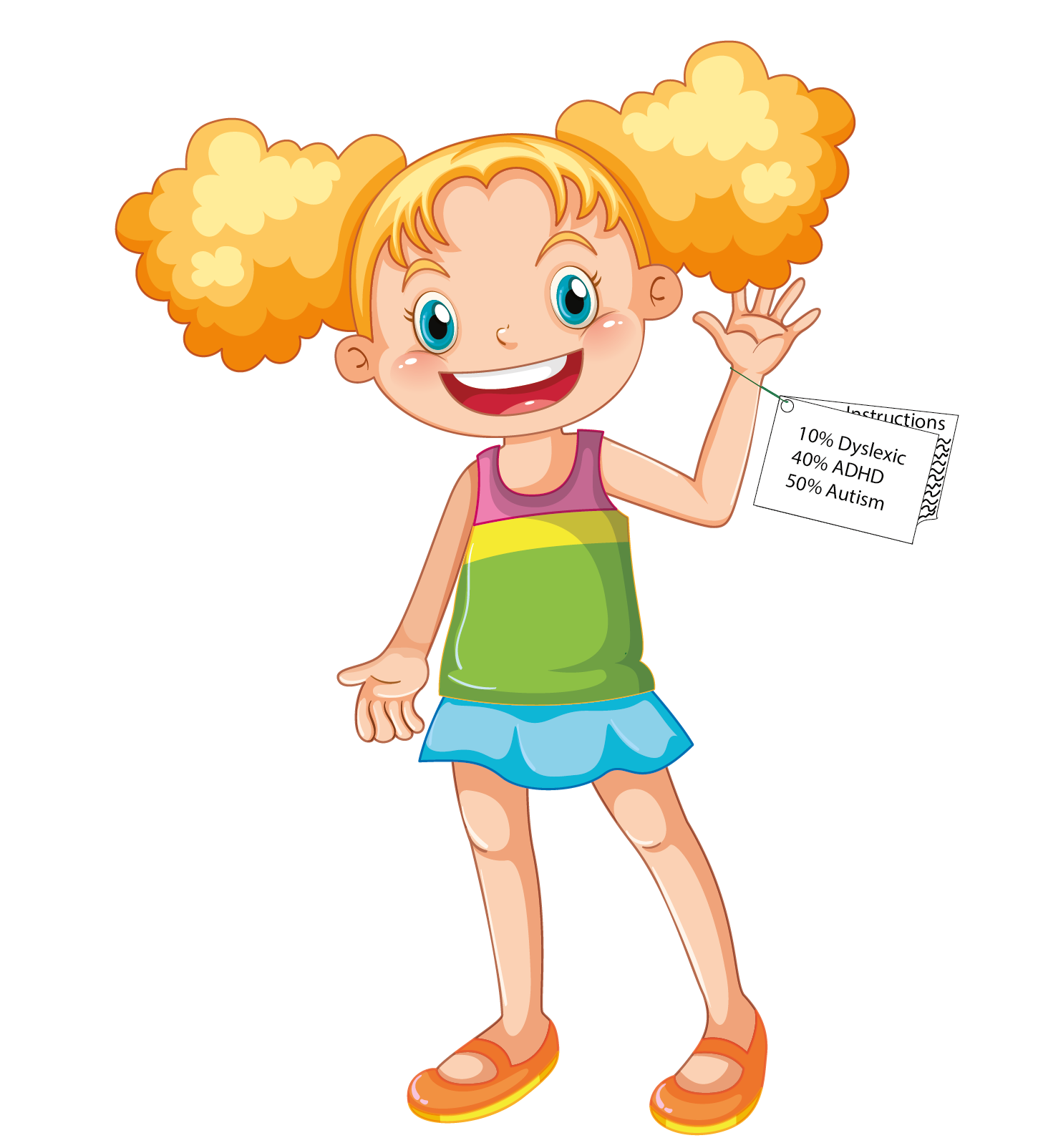What’s In A Name… Or A Label?
Do parents put off or never get a diagnosis for neurodivergent children because they don’t want to ‘label?’
I hear this quite often, I just don’t want them to have to live with a ‘Label’ and it honestly just confuses me, if your child had a physical health condition you’d want them to be diagnosed and to get as much help as possible, if your daughter had a broken leg you’d make sure they had crutches, if your son was short sighted you’d make sure they had glasses without the worry of someone labelling them however if your child has dyslexia you wouldn’t get them extra time on their exams or if they had ADHD you wouldn’t make sure they could sit in a quieter area to complete school work?

I do understand that there can be a stigma that comes with these diagnoses, people can’t see the condition and it’s human nature to judge and I understand that is the last thing we want people to do to our children, however, I’m not sure if that would be enough to stop you getting them the help they need.
There are so many adults getting their diagnosis later on in life now, I’ve read so many pieces where people say they wish they’d known when they were young what their diagnosis was and that they had a better understanding of how and why they behaved and looked at the world the way they did.
I felt every different emotion when I got diagnosed. I felt relieved that I finally had a reason as to why my brain worked differently from those around me. I could finally rationalize all of the quirks that I had.
— JENNIFER CARTY
- A new study shows that receiving an autism diagnosis in adulthood rather than childhood can lead to lower quality of life, more severe mental health symptoms, and higher autistic trait levels.
Study: Autism Diagnosis Later in Life Linked to Worse Mental Health (verywellhealth.com)![]()
I suppose I feel so passionate about it because I fought for years to try to get my son help and a diagnosis, I was told he was ‘Quirky’ ‘Different’ ‘Original’ but because he was never violent or disruptive we found it impossible to get him the help he needed, he suffered with anxiety, fight or flight responses that made him feel sick continuously and when we finally got to the ‘Specialist’ we were told that he only had another year left in comprehensive school and it would be over so why label him now?’ What was over exactly? Was he not going to work? Make friendships? Find a partner? Thank goodness he is a brilliant boy that excels at what he wants to do and is kind and companionate to everyone as well as having his mothers excellent sense of humour which makes everyone’s life easier. It has however put him off doctors and hospitals, ‘They don’t believe you anyway so what’s the point?’

If Consultants and specialists are saying things like we don’t want to label them to patients and their parents then why wouldn’t they think the same? If they think there’s a prejudiced then I’m sure everyone will but this is what has to change, the prejudice, the stigmas and the belief that they will live with more problems with a diagnosis than the symptoms of the conditions themselves. The only thing that will change these are peoples ideas and kindness, I don’t know how many times we have to keep saying please just be kind but I guess we’ll just keep saying it until it helps.
- Neurodiversity is an elaborate word for all the different atypical ways in which individual brains can function. It covers both learning difficulties, such as dyslexia
 , and developmental conditions, including attention deficit hyperactivity disorder (ADHD)
, and developmental conditions, including attention deficit hyperactivity disorder (ADHD) .
.
Thanks for reading, let us know what your thoughts are?
Bye for now,
Gemma
Leave a Reply